content body
Three undergraduate students and six Auburn graduates have won National Science Foundation (NSF) Graduate Research Fellowships (GRFP) for graduate study in the fall. This prestigious fellowship program ensures the vitality and diversity of the scientific and engineering workforce in the United States.
Each fellowship provides three years of support accessible over five years. The NSF affords a stipend of $34,000 to the fellow and a cost-of-education allowance of $12,000 to the degree-granting institution.
undergraduate students
The following undergraduate students have been selected as NSF GRFP recipients for 2024:
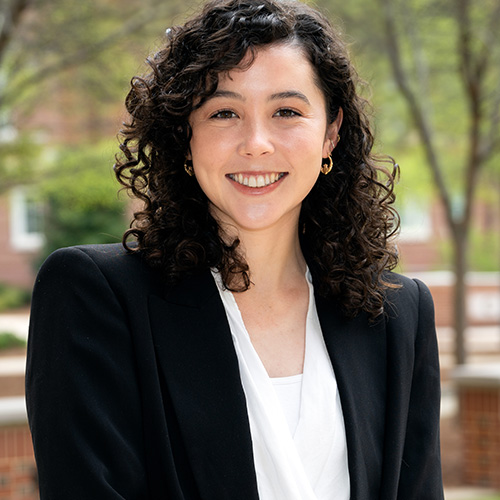
Maggie Nelson
Maggie Nelson, a senior in the Honors College, will graduate this spring with a bachelor’s in aerospace engineering and minors in materials engineering, philosophy and sustainability studies from the Samuel Ginn College of Engineering and the College of Liberal Arts, respectively. Nelson plans to create multifunctional materials that will potentially provide valuable products, like energy or oxygen, in space environments while having an aesthetic design appeal. According to Nelson, for interplanetary life to be truly sustainable, limited material infrastructures can be made multifunctional to promote a healthy life. Nelson added that materials created for space environments must be designed and tested to fulfill all necessary functions of life, including well-being. These infrastructures will be pivotal as humans explore the realms of space.
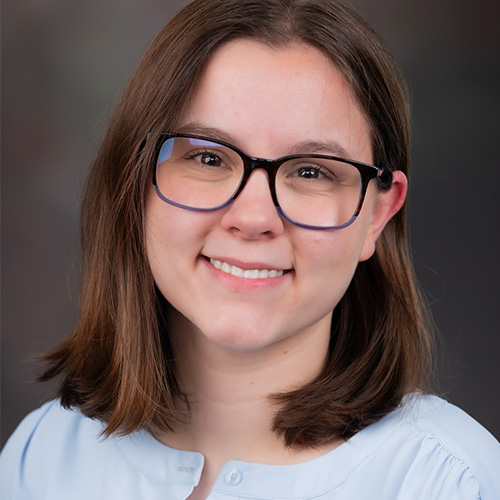
Katie Wolf
Katie Wolf is a senior in the Honors College and will graduate this spring with a bachelor’s in both electrical engineering and theatrical design and production with minors in animation and nuclear power generation systems from the Samuel Ginn College of Engineering and College of Liberal Arts, respectively. Her research examines the effect of light that is just beyond the visible spectrum and how it impacts a person’s focus and ability to discriminate details. According to Wolf, by enhancing the quality of lighting in settings ranging from surgical suites to classrooms, near visible lighting will improve human performance, reducing the financial strain of medical malpractice incidents and workers’ compensation on U.S. citizens. Her research not only stands to reshape the way we understand lighting but also holds the promise of influencing regulatory standards; advancing technology and research; and contributing to a safer, more efficient and human-centric industrial landscape for all.
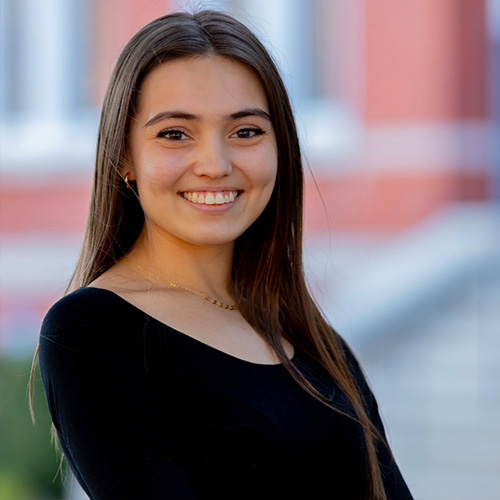
Marisa Kelley
Marisa Kelley is a senior graduating this spring with a bachelor’s in materials engineering from the Samuel Ginn College of Engineering. Her research involves mixing algae into a network of thin plastic fibers to help the algae turn usable light into energy. If successful, her research will support renewable energy efforts by creating a more efficient biofuel cell or biohybrid fuel cell. In addition, her research may provide a greater understanding of biological interactions with polymer nanofibers, which has implications for the medical field, particularly for timed drug delivery or tissue scaffolding.
“Seeing our undergraduate student researchers being nationally recognized is very exciting. Clearly, the depth and breadth of the undergraduate research program at Auburn are propelling our students among the best in the state and the nation,” said Lorenzo Cremaschi, director of the Office of Undergraduate Research and professor of mechanical engineering.
graduate students
The following graduate students have been selected as NSF GRFP recipients for 2024:
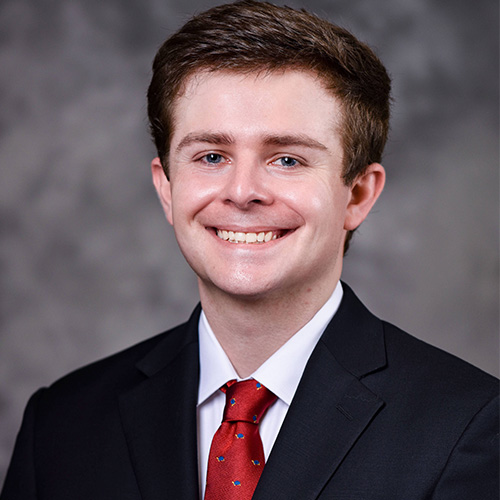
Dylan Bowen
Dylan Bowen is a recent Auburn and Honors graduate who received his bachelor’s degree in chemical engineering from the Samuel Ginn College of Engineering in 2022. Bowen is currently in his second year of graduate school at Auburn and his research involves key drivers of cell migration. According to Bowen, when cells in our body move, they sense a variety of biophysical signals, including stiffness, fluid viscosity and flow. How these signals affect cell behavior is still largely unknown. Using new bioengineering techniques, Bowen plans to study how migrating cells interpret physical stimuli. Given that cell movement plays an important role in several physiological and pathological events, his research could identify new therapeutic targets to combat diseases such as cancer metastasis and atherosclerosis.
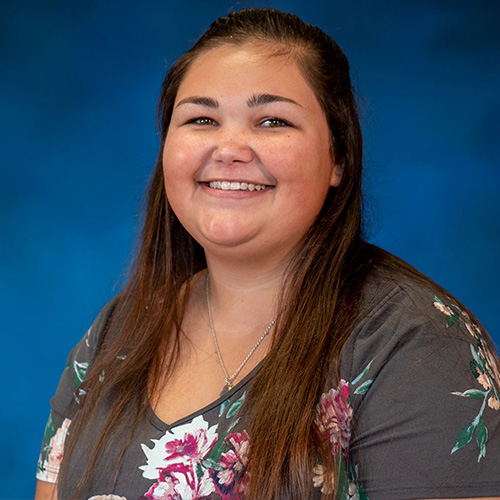
Angel Gibbons
Angel Gibbons is a graduate student in the chemistry and biochemistry department within the College of Sciences and Mathematics. Her research involves determining the physical and chemical properties of human respiratory aerosols. Gibbons uses fluorescence probe spectroscopy to analyze the phase state, pH and viscosity of submicron model respiratory aerosols. By developing an understanding of how different factors influence these properties, the research created by Gibbons can help develop strategies to mitigate virus transmission.
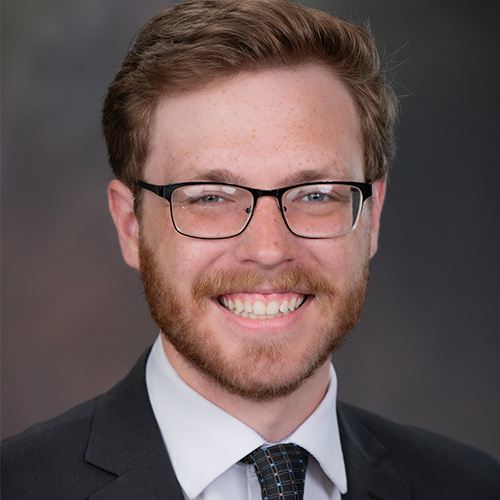
Ryan Pollard
Ryan Pollard received his bachelor’s degree from Auburn in 2023 and is currently a doctoral candidate in biomechanical engineering with the Samuel Ginn College of Engineering. His current research revolves around studying the neural control of assistive devices for paralytic populations. According to Pollard, there is a severe limitation of current wearable robotics, which requires the user to be able to move their limbs (at least partially) for exoskeleton intervention to be beneficial. To combat this, his research focuses on discerning user motor intent from wearable sensors that record the electrical activity of the brain. He proposes to leverage artificial intelligence techniques to accurately classify movement intent and direction at the lower-limb joints to more accurately inform exoskeleton control. Such movement classification models would seek to help paralytic and atrophic populations regain independence over their movement.
“This prestigious fellowship is a testament to the hard work and dedication of our three graduate student recipients. Their scholarly contributions to their respective fields thus far truly embody the mission of Auburn University, to improve the lives of the people of Alabama, the nation and the world through life-enhancing research and scholarship and selfless service. We congratulate these students on this achievement,” said George Flowers, dean of the Graduate School.
auburn graduates
The following Auburn graduates have been selected as NSF GRFP recipients for 2024:
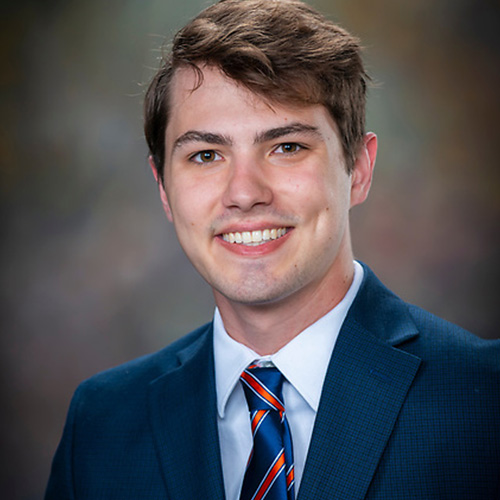
Harrison Walker
Harrison Walker is a recent Auburn and Honors graduate who received his bachelor’s degree in materials engineering from the Samuel Ginn College of Engineering in 2022. He is currently a graduate student at Vanderbilt University studying interdisciplinary materials science. His research harnesses the power of advanced microscopy and cutting-edge computational techniques to study materials at the atomic scale. By integrating experimental methods, he’s working to uncover groundbreaking insights into the vibrational properties of materials. His study of vibrational properties has profound implications across several critical fields including thermal management in electronic and renewable energy systems, as well as nanofluidic applications like water purification and drug delivery systems. Walker hopes to leverage the latest advancements in science and engineering to address real-world challenges and drive progress toward a more sustainable future.
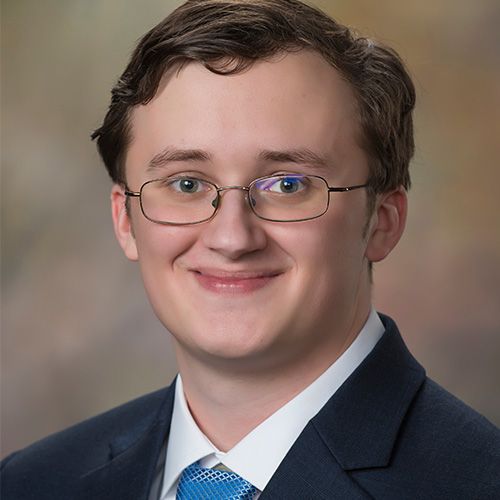
Brock Hunter
Brock Hunter is a recent Auburn and Honors graduate who received his bachelor’s degree in chemical engineering from the Samuel Ginn College of Engineering in 2022. Currently, Hunter is a doctoral candidate in chemical engineering at Pennsylvania State University. Hunter is developing ways to provide accessible and environmentally friendly methods to make drinking water available around the world. His research involves creating glass beads with polymer coatings, which are then crosslinked with catalysts that absorb visible light, excite oxygen and destroy bacteria. These beads are metal-free, recyclable and can be shipped anywhere in the world to provide accessible methods to make drinking water and replace metal catalysts used by industry today that leech into the environment.
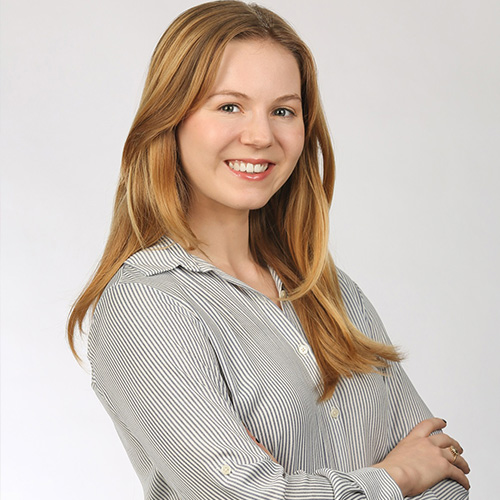
Savannah Lynn
Savannah Lynn is a recent Auburn graduate who received her bachelor’s degree in chemical engineering from the Samuel Ginn College of Engineering. Currently, Lynn is a doctoral candidate in civil engineering at the University of Virginia. Lynn aims to address the critical need for greater spatial and temporal data in stormwater management by harnessing citizen science techniques to inform ground-level knowledge for more effective flood mitigation strategies. This research seeks to leverage citizens’ desire to increase their community’s resilience against urban flooding through the deployment of an Internet of Things (IoT) network for data collection. This will empower local community members to proactively address flood risks and aid in the development of detailed models, leading to more informed strategies for stormwater management.
Honorable Mentions
Eight students received an Honorable Mention from the National Science Foundation. These include Dylan Ross Pollard (chemical engineering, Samuel Ginn College of Engineering), Robin Lynne Weaver (aerospace engineering, Samuel Ginn College of Engineering), Kylie Shae Weis (entomology and plant pathology, College of Agriculture), Maria Mercedes De Jesus (biological sciences, College of Sciences and Mathematics), Lucas Parvin (ecology, College of Forestry, Wildlife and Environment), Marley G. Billman Miller (psychology, College of Liberal Arts), Mariaguadalupe Vilchez (fisheries, College of Agriculture) and Hannah A. Henry (science policy, College of Forestry, Wildlife and Environment).



